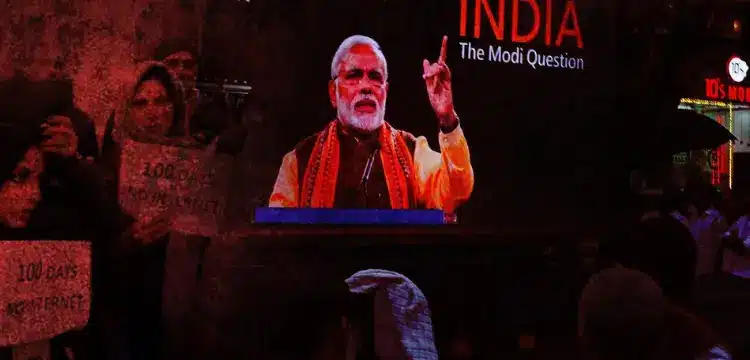Following the abrogation of Article 370, the policies of the Modi government in Kashmir have faced intense scrutiny and criticism. Critics argue that these policies are aimed at altering the demographic composition of the region by promoting Hindu culture, potentially shifting the balance where Muslims are in the majority to a situation where they become a minority.
Since the removal of Article 370, the Modi administration has been accused of systematically promoting Hindu cultural elements in Kashmir, which observers perceive as an attempt to weaken the dominance of the Muslim majority. This strategy is viewed as part of efforts to consolidate the Bharatiya Janata Party’s (BJP) influence in the region.
Despite these efforts, Kashmir remains in a state of tension and unrest, and normalcy has not returned to the region. The Modi government has faced significant criticism both domestically and internationally for its handling of the situation, with human rights organizations and global bodies condemning its policies as oppressive and detrimental to Muslim communities.
Read More: Narendra Modi To Be elected India’s Prime Minister Thrice
In the backdrop of these developments, the recent Lok Sabha elections in Kashmir highlighted challenges for the Modi government. The BJP chose not to field candidates in the region’s constituencies, a move seen as avoiding potential electoral defeats. Meanwhile, parties traditionally seen as aligned with the BJP, like the National Conference and the People’s Democratic Party, also struggled to secure victories.
An independent candidate, Sheikh Abdul Rasheed, emerged victorious in the Baramulla seat, symbolizing a rejection of the BJP’s Hindutva agenda. Rasheed, who had previously been imprisoned on contested terrorism charges, represented a significant electoral statement against the BJP’s policies in the region.
Furthermore, the Modi government has been accused of engaging in false flag operations to deflect attention from its political setbacks. Critics allege that these operations are designed to blame Pakistan for violence in Kashmir, thereby justifying stringent security measures and diverting public attention from pressing domestic issues such as unemployment.
Overall, the Modi government’s policies in Kashmir continue to be highly controversial, drawing both domestic opposition and international scrutiny for their implications on regional demographics, human rights, and political stability.











